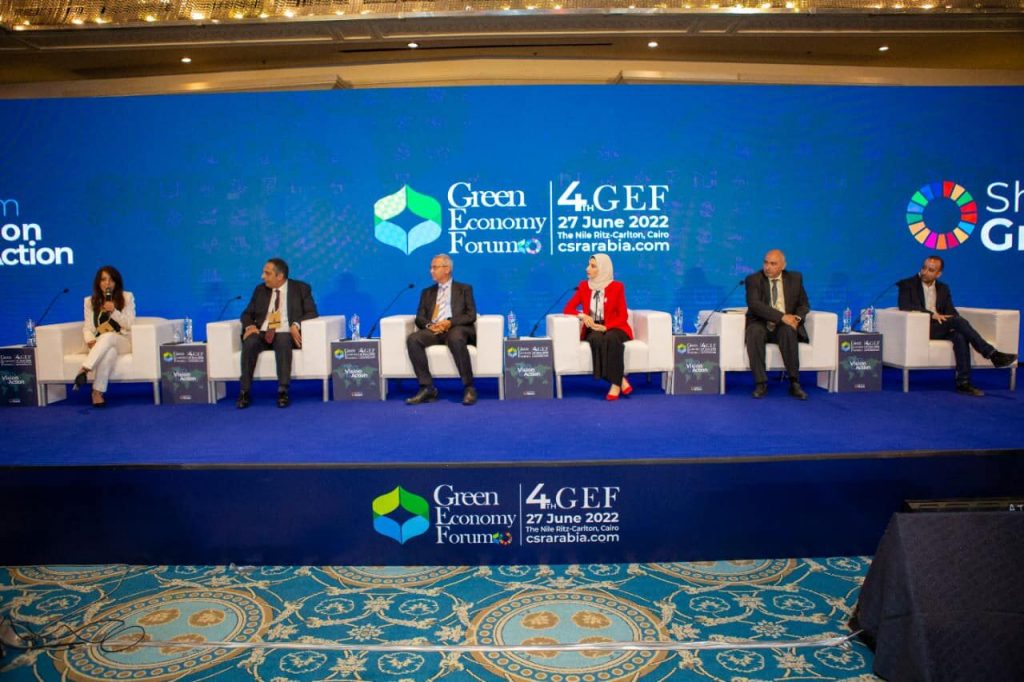Blue Zone
G20 Delegations Now Have Their Marching Orders for COP29: Simon Stiell
Simon Stiell, Executive Secretary of the UN Framework Convention on Climate Change (UNFCCC), stressed the critical need for a new climate finance goal at COP29 in a written statement responding to the G20 Rio de Janeiro Leaders’ Declaratio. “G20 Leaders have sent a clear message to their negotiators at COP29 to not leave Baku without a successful new finance goal. This is in every country’s clear interests,” said Stiell. He reiterated on the importance of financial reforms to support climate action, particularly in light of global economic challenges and the growing climate impacts. “Leaders of the world’s largest economies have also committed to driving forward financial reforms to put strong climate action within all countries’ reach. This is an essential signal, in a world plagued by debt crises and spiraling climate impacts, which are wrecking lives, disrupting supply chains, and fueling inflation in every economy,” he added.
COP29 Gets Boost from G20 as Leaders Back Scaling Up Climate Finance from ‘Billions to Trillions’
The G20 communiqué has provided a boost to COP29 negotiations, calling for a rapid and substantial scaling up of climate finance from ‘billions to trillions from all sources.’ Stiell highlighted the urgency of the G20’s message: “A successful new finance goal… is in every country’s clear interest,” stressing that this would be beneficial for all countries. He noted that financial reforms ensure that climate action is more accessible to nations, especially as the world faces climate impacts and economic instability.
UN Secretary-General António Guterres, expressed his concerns about the potential consequences of failure at COP29. “Failure [in Baku] is not an option. It might compromise the ambition in the preparation of the new national climate action plans, with potentially devastating impacts as irreversible tipping points are getting closer. The preservation of the Amazon is a case in point,” he said. He warned against missing the opportunity of reaching an agreement on a new climate finance deal would make COP30 in Brazil much more difficult: “I appeal to the sense of responsibility of all the countries around this table to help ensure that COP29 will be a success.”
The G20 communiqué was received with mixed reactions from climate and environment activists. Some expressed cautious optimism, while others found it lacking in concrete commitments. “Developed nations remain unmoved, failing to quantify the trillions needed or to ensure these funds are provided as grants – essential for achieving climate justice,” said Harjeet Singh, Global Engagement Director for the Fossil Fuel Non-Proliferation Treaty Initiative, voicing his concerns. “Their rehashed rhetoric offers no solace for the fraught COP29 negotiations, where we continue to see a deadlock on climate finance,” he added embarking that the ongoing COP29 negotiations face deadlock on climate finance.
Technology and Policy Innovations for Emission Cuts in Heavy Industries Unveiled at COP29
Leaders presented strategies for reducing emissions in high-emitting sectors like steel and cement at COP29. During Technology Day on Transformative Industry, co-organized by UN Climate Change’s Technology Executive Committee (TEC) and UNIDO, the focus was on innovations that can drive emissions reductions in heavy industries, which account for 34% of global greenhouse gas emissions. Robert Habeck, Germany’s Vice-Chancellor and Minister for Economic Affairs and Climate Action, reiterated on the importance of collective action: “The decarbonization of global industry is within reach but only if we act decisively and collectively. Germany stands ready to lead and collaborate to bring transformative technologies to scale.”
Syeda Rizwana Hasan, Advisor for Bangladesh’s Ministry of Environment, stressed the need for financial and technical support for developing countries. “International cooperation is crucial for decarbonization without compromising economic growth,” she said. The discussion is timely, as countries are preparing updates to their national climate plans (NDCs) for 2025. Innovative technologies for decarbonizing production processes were showcased, and the TEC launched a policy brief to help integrate hard-to-abate industries into national climate targets, aligning with the Paris Agreement’s 1.5°C goal, during the event.
Agrifood Solutions and Financing Transformation at COP29
Delegations discussed the vital role of agrifood systems in addressing climate change at COP29 in Baku. New analysis from the UN Food and Agriculture Organization (FAO) revealed that nearly all countries (94%) identify agrifood systems as a priority for climate adaptation and 91% for mitigation in their NDCs. FAO Assistant Director-General Viorel Gutu stressed the potential of agrifood systems to tackle challenges like food security, climate change, biodiversity loss, and water scarcity, but highlighted that funding has decreased from 37% to 23% of all climate-related development finance.
Jemimah Njuki, Chief of Economic Empowerment at UN Women, further stressed the importance of supporting women-led farms for food security, pointing out that women are at the heart of global food production but face barriers like limited land ownership and access to financing. Andrea Echiverri of the Global Forest Coalition raised concerns about the environmental impact of current agricultural practices, particularly livestock farming, which significantly contributes to greenhouse gas emissions and deforestation. She called for more attention to the sustainability of livestock farming. “Financing the Transformation of Agri-Food Systems”, Azerbaijan’s Deputy Minister of Agriculture, Elchin Zeynalov, underscored the need for comprehensive support to help farmers adapt to climate change and implement climate-smart practices, during a panel discussion on. FAO Senior Officer Martial Bernoux, World Bank’s Shobha Shetty, and Bill Sutton also spoke on climate action planning, climate resilience, and the current state of financing for agri-food systems. They stressed the importance of significant emission reductions and the opportunities for financing climate-smart agriculture.
Together for Farmers: FAO and COP29 Presidency Launch the ‘Baku Harmoniya Climate Initiative for Farmers’
The FAO, in collaboration with the Azerbaijan COP29 Presidency, has officially launched the ‘Baku Harmoniya Climate Initiative for Farmers’ to support climate-resilient agrifood systems.
The initiative addressed the challenge of navigating the many initiatives and programs designed to assist farmers in adapting to climate change. The Harmoniya Initiative serves as a platform to bring together over 90 global and regional climate initiatives, networks, and partnerships that currently exist in the food and agriculture sector. The goal is to foster coherence, alignment, and sharing of best practices to achieve greater impact for farmers and rural communities.
COP29 Presidency and FAO emphasized the critical role of farmers as key agents in driving climate action in a statement. The Baku Harmoniya Climate Initiative for Farmers will not only empower farmers, villages, and rural communities but also identify gaps and opportunities for future policymaking and support, ensuring that the needs of these vital stakeholders are addressed. The initiative will serve as a key platform for sharing lessons learned and enhancing collaboration to advance the transformation of agrifood systems globally.
Action on Water at COP29
At COP29, water-related challenges were highlighted during a panel discussion at Baku Stadium, where experts emphasized the threats posed by floods, droughts, shrinking water sources, and rising water levels. These challenges are linked to forced displacement and undermine food security. In countries like Kyrgyzstan and Tajikistan, shrinking glaciers are threatening long-term water supplies.
Sonja Koppel, Secretary of the UN Water Convention, stressed, “The climate knows no borders, and water knows no borders.” She pointed out that 153 countries share water bodies, but only 28% have agreements to cooperate on managing these resources. An example of success is the Central Asian countries, which have resolved differences and established cross-border cooperation. Koppel urged nations to utilize water resources as a tool for peace and cooperation over shared natural resources. The UN Water Convention facilitates such efforts, aiming for sustainable use of transboundary water resources through collaboration among countries.
Azerbaijan and Russia Discuss Ecological Solutions for Caspian Sea at COP29
Azerbaijan and Russia held high-level talks on addressing ecological challenges in the Caspian Sea at COP29. Zaur Mikayilov, Chairman of the Azerbaijan State Water Resources Agency, and Dmitry Kirillov, Chairman of Russia’s Water Resources Agency, discussed solutions to the environmental issues facing the Caspian. The meeting impacted global climate change in the region, reiterating on the importance of regional cooperation for managing transboundary water resources. Both sides stressed the need for innovative solutions, knowledge exchange, and strengthened partnerships to ensure the sustainable use and protection of shared water resources.
ACE Presidency Event: Advancing Climate Transparency: Opportunities through Action for Climate Empowerment
“Advancing Climate Transparency: Opportunities through Action for Climate Empowerment,” was the title of an event held in response to the Glasgow Work Programme on Action for Climate Empowerment (GWP), adopted at COP26, and hosted by the ACE Presidency at COP29. This event is part of a series that promotes policy coherence and international cooperation by addressing thematic areas critical to the implementation of the UN Framework Convention on Climate Change and the Paris Agreement.
The event included a panel presentation on how Action for Climate Empowerment (ACE) such as: climate education, public awareness, training, public participation, access to information, and international cooperation— demonstrating how this can promote climate transparency processes. These discussions aimed to explore the role of ACE in enhancing transparency and fostering collaboration in global climate action.
BambooBoost: New Collaboration to Support Climate Action, Resilience, and Biodiversity Worldwide
A new partnership has been launched between UN Climate Change and the International Bamboo and Rattan Organisation (INBAR) to promote bamboo-based climate solutions. This collaboration aims to leverage bamboo’s potential in addressing climate change, stressing its role in mitigation and adaptation. The event highlighted the growing recognition of bamboo’s environmental benefits, with expectations that countries producing bamboo will commit to including the resource in their enhanced Nationally Determined Contributions (NDCs) and National Adaptation Plans (NAPs). These commitments will drive greater integration of bamboo into global climate action frameworks, strengthening both climate resilience and biodiversity conservation.
Climate Education and Information Support Climate Transparency
Climate education is a critical tool for empowering individuals with the needed knowledge and skills to drive impactful climate action. The event explored how climate education and access to information can enhance climate transparency and foster stronger international cooperation. Participants were encouraged to identify the essential role that education plays in supporting informed decision-making and driving global efforts towards climate action. The event stressed the importance of transparency in achieving global climate goals and facilitating cooperation among nations through improving access to climate-related information and promoting educational initiatives.
Green Zone
Reinforcing global efforts to address the climate crisis through innovative agricultural solutions and waste management practices were addressed on Food, Agriculture, and Water Day at COP29. Key developments in sustainable agriculture and climate action were announced,
Reducing Methane from Organic Waste Declaration
Over 30 countries, representing nearly 50% of global methane emissions from organic waste, endorsed a historic declaration committing to the reduction of methane emissions. This initiative builds upon the Global Methane Pledge (GMP). An initiative that was first launched at COP26 with the goal of reducing methane emissions by at least 30% below 2020 levels by 2030. The signatories of this declaration have committed to including specific methane reduction targets in their Nationally Determined Contributions (NDCs). This included seven of the world’s top ten methane-emitting countries from organic waste. These nations have also pledged to introduce concrete policies and roadmaps to address methane emissions, an essential step towards meeting the GMP goals and fulfilling climate commitments. Organic waste accounts for a significant portion of global methane emissions. This is a critical area of focus in this climate mitigation strategy, as reducing methane in this sector is crucial for achieving the goals of the Paris Agreement.
- “The COP29 Presidency has worked to drive progress on mitigation throughout the year through both the UNFCCC process and our own Action Agenda. Today’s declaration takes a great stride forward in helping nations to implement the Global Methane Pledge, which is an important part of global efforts to reduce our emissions in this critical decade for climate action,” COP29 President Mukhtar Babayev said.
- “Fast-tracking actions to reduce methane from organic waste is critical to keep the goals of the Paris Agreement within reach and can strengthen our food systems globally while harnessing circular economy opportunities,” Martina Otto, Head of the UNEP-Convened CCAC Secretariat, emphasized the significance of this pledge, stated.
Baku Harmoniya Climate Initiative for Farmers
In collaboration with the Food and Agriculture Organization (FAO), the COP29 Presidency officially launched the Baku Harmoniya Climate Initiative. This initiative aims to consolidate various climate initiatives that support the agriculture sector, providing a unified platform for farmers and agricultural organizations worldwide. The Harmoniya platform will offer access to resources, funding, and guidelines, making climate action and financial support more accessible to farmers, particularly in rural and vulnerable communities. The initiative stressed the critical role of farmers in climate action and aims to empower them to adopt sustainable and resilient agricultural practices. The platform also seeks to identify gaps in existing climate support mechanisms, creating opportunities for policymakers to enhance future programs aimed at accelerating the transformation to sustainable agrifood systems.
- Kaveh Zahedi, Director of the FAO’s Office of Climate Change, Biodiversity and Environment said, “FAO welcomes the launch of the Baku Harmoniya Climate Initiative for Farmers and looks forward to working with the COP29 Azerbaijan Presidency, as well as stakeholders and partners, to accelerate the transformation towards sustainable, inclusive and resilient agrifood systems.”
Azerbaijan’s Methane Reduction Commitment
As part of the global push to reduce methane emissions, the Ministry of Agriculture of Azerbaijan announced a new collaboration with the UNEP-convened Climate and Clean Air Coalition to develop a methane reduction roadmap for its agricultural sector. This initiative aligns with Azerbaijan’s commitment to the Global Methane Pledge and focuses on sustainable practices in livestock management and manure management systems. The country’s efforts to reduce methane emissions are part of a broader strategy to address climate change while supporting the agricultural sector, a key contributor to the national economy.
Slow Food, Low Impact: Advancing Sustainable Tourism with Local Agriproducts
“Slow Food, Low Impact: Advancing Sustainable Tourism with Local Agriproducts”, was the title of a panel hosted in COP29’s Green Zone. The event focused on the connection between sustainable agriculture and tourism and was organized by AZERSUN Holding and the COP29 Azerbaijan Operating Company. Experts, including Florian Sengstschmid (CEO of the Azerbaijan Tourism Board), Dr. Nazia Mintz Habib (University of Cambridge), and Edward Mukiibi (President of Slow Food), discussed how local agricultural products can reduce the carbon footprint of food in tourism, promoting eco-friendly travel.
The panel stressed the role of sustainable farming practices in minimizing tourism’s environmental impact while fostering local food systems and supporting the Slow Food movement. The event was part of broader discussions at the Green Zone that focused on private sector contributions to climate action, agricultural challenges, and international cooperation in climate issues.
This session was part of COP29’s broader focus on food systems and climate change, aligning with ongoing discussions on sustainable solutions in the food and agriculture sectors. particularly between government entites, international organizations, and the private sector, in tackling climate-related challenges.
References:
https://news.un.org/en/story/2024/11/1157136
https://www.fao.org/climate-change/fao-at-cop29/Food-Agriculture-and-Water-Day/en
https://unfccc.int/cop29/updates-archive
https://cop29.az/en/media-hub/news/session-on-advancing-sustainable-tourism-held-at-cop29-green-zone





